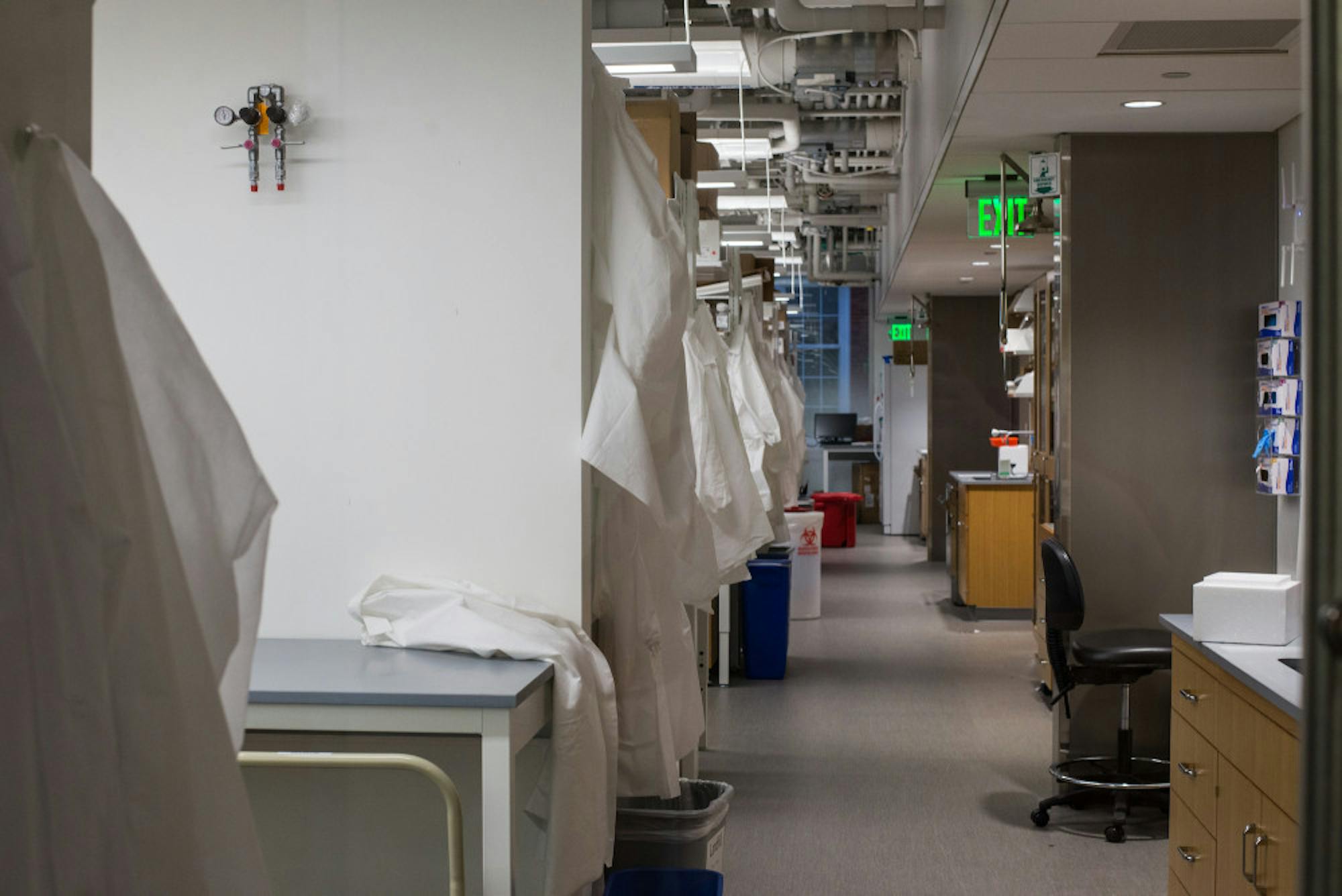People for the Ethical Treatment of Animals (PETA) last month sent a letter to University President Anthony Monaco, demanding that Tufts immediately prohibit any new animal experiments and finalize and end ongoing tests, as well as publicly release information about the status of animal experiments conducted by the university.
The April 15 letter was prompted by Tufts’ decision to suspend all non-essential on-campus research, including research involving animals, as part of its COVID-19 response.
“Animal orders, imports and exports will be stopped. Critical animals/cages or those requiring treatment should be labeled, and consideration should be given to reducing cage census,” Vice Provost for Research Caroline Genco wrote in a message to members of the Tufts research community on March 19.
According to Shalin Gala, PETA's vice president of international laboratory methods, this decision likely resulted in the killing of animals deemed non-essential for research.
“PETA is now questioning why any of these animals are being bought, bred, or experimented on in the first place,” Gala told the Daily. “The COVID-19 pandemic should be a moral and scientific reckoning for the school.”
PETA’s letter urges Tufts to end all current and new animal experiments, ban the breeding and purchase of new animals, switch to alternative research methods and tell the public how many animals were euthanized.
Tufts has taken steps to minimize the impact of on-campus research suspension on animals in its facilities, according to Patrick Collins, Tufts’ executive director of media relations.
"[These steps include] suspending new experiments involving animals, suspending the new acquisition of animals, providing guidance to researchers on planning and mitigation and arranging for continued emergency animal care if a lab’s essential personnel were unable to provide it,” Collins wrote in an email to the Daily.
Tufts asserts that it is committed to the humane and ethical treatment of animals, despite PETA’s demands. On-campus animal experiments are kept to a minimum as a matter of policy, according to Collins.
“All researchers are required to justify the use of animals before their research is approved,"Collins said. "When animals are used, Tufts’ policy is to use the fewest animals possible to achieve research results."
He added that protocols and policies for animal experiments are reviewed by Tufts’ Institutional Animal Care and Use Committee, which ensures Tufts’ compliance with federal guidelines so the university can continue to receive federal funding for animal research. Animal experiments are alsooverseen by a staff of veterinary care professionals.
Collins explained that Tufts’ research, including projects that work with animals, is valuable to medical advancements and treatments.
“Much of our research is aimed at preventing and alleviating disease and suffering in both humans and animals, and at addressing important societal problems and needs,” Collins said. “For example, anyone who is being treated for diabetes ... or has received an organ transplant has likely benefited from animal research."
Gala disagreed with the assertion that animal experiments are essential in helping to advance medical care.
“In our view, there should be no such thing as non-essential animal research taking place in laboratories, especially at the expense of taxpayers who pay nearly $18 billion each year for failed animal tests,” Gala said.
Gala claimed that studies have found animal research to be unsuccessful when it is applied to humans.
“95% of all new medications that test safe and effective [in] animal tests actually end up failing human clinical trials,” he said.
PETA has reached out to more than 80 universities and research institutions in addition to Tufts that have announced they are ramping down animal research in response to the COVID-19 pandemic, which has resulted in the killing of thousands of animals, according to Gala.
Collins said Tufts will not be responding to PETA’s letter.
“The university thoroughly complies with all governmental reporting requirements pertaining to its research enterprise and will continue to do so," Collins said. "It does not provide data on its research operations to private parties.”
Going forward, Gala hopes that universities and research institutes like Tufts will be more transparent with the status of their animal experiments and programs.
“It's important for ... universities to be transparent in their implementation programs, especially during this COVID-19 pandemic, so that the public is kept fully informed regarding how universities are using taxpayer dollars to deal with animals who they deem to be non-essential,” Gala said.
Gala also hopes that universities and research institutions will transition to more human-relevant and animal-free research methods.
“Animal testing is really a scaled paradigm, and there are much better and more sophisticated ways of advancing human healthcare, without harming animals,” Gala said.






